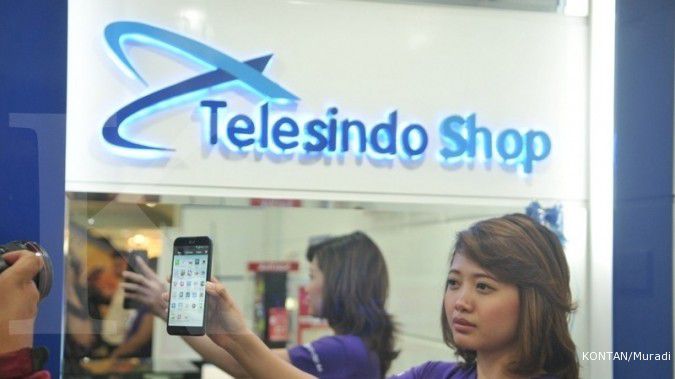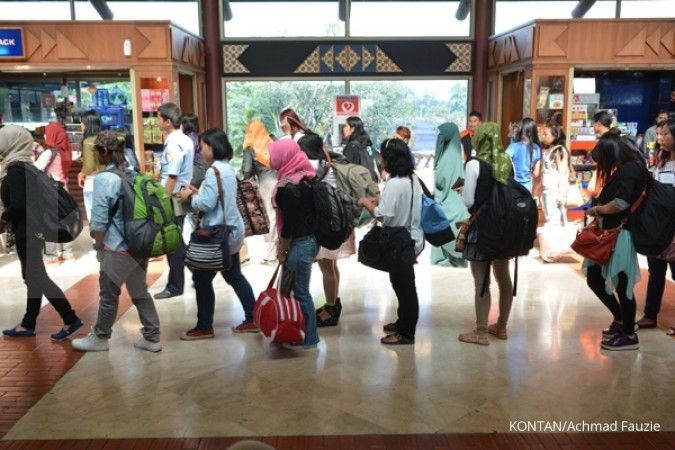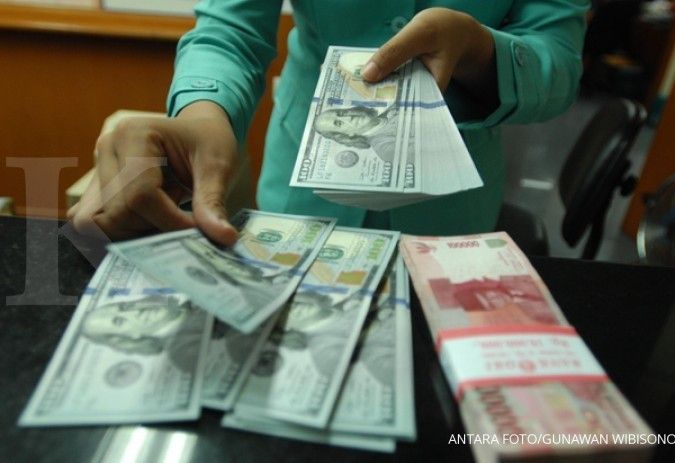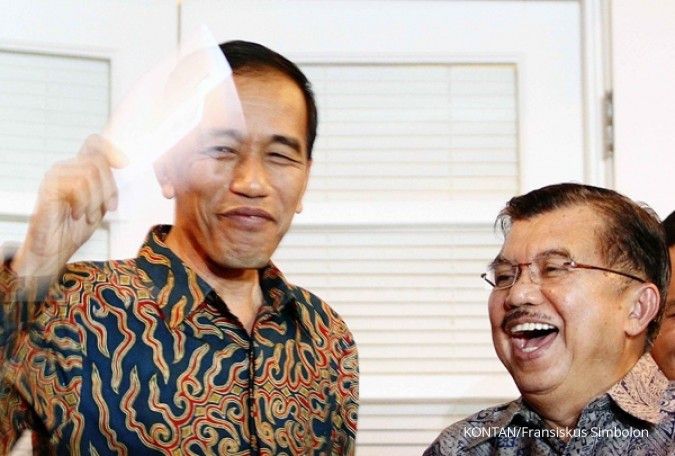JAKARTA. As part of efforts to open up greater public access to financial services, the Financial Services Authority (OJK) will regulate the implementation of branchless banking, especially for regional development banks (BPD) and sharia banks, a top official says.
OJK board of commissioners Muliaman D. Hadad said Thursday that a regulation on branchless banking, scheduled to be issued by the end of November, would also address terms for BPDs and sharia banks that are interested in providing the service.
Branchless banking is a distribution channel strategy used for delivering financial services without relying on conventional bank branches, for example, through the use of cell phones.
Muliaman said that some requirements would be imposed on those banks.
“The most important thing is that BPDs and sharia banks ensure they have a supporting e-banking system in place backed by the appropriate technology, human resources and operations,” Muliaman told reporters.
Speaking on the sidelines of Bank Mandiri’s International Financial Inclusion Forum here, Muliaman said that the OJK would examine the readiness of every bank requesting to provide the service.
OJK’s banking research and regulation department head, Gandjar Mustika, said earlier this week that the branchless banking program, code named “Laku Pandai”, would gain momentum amid the high penetration of cell phones in the country.
Given that every Indonesian owns one or two cell phones, banks will be able to reach out to more people, including those belonging to the lower-income bracket and residing in remote areas, in partnership with local agents.
“Each bank participating in the Laku Pandai program will appoint its own agents who will assist customers with basic banking products,” he said on Tuesday.
The OJK, according to Gandjar, is optimistic that the program will be able to generate up to Rp 200 trillion (US$16.9 billion) in savings within the next five years.
The program is expected to go hand-in-hand with a similar program promoted by Bank Indonesia (BI) dubbed Digital Financial Services (LKD), which also employs agents in the form of institutions or individuals.
Meanwhile, Mandiri Institute, an economic think tank under state lender Bank Mandiri, found that at least 48 percent of the country’s 249 million people did not have access to financial services last year, with only 20 percent of the population aged 15 and above having accounts at formal financial institutions. The numbers are lower than Malaysia and Thailand, where 66 percent and 73 percent of their populations, respectively, have access to financial services.
OJK’s director of information and education, Agus Budiarto, said that a recent survey conducted by his institution on unbankable people in the area of Depok, West Java, showed that pricing was the main issue a person considered before he or she opened an account with a bank or financial institution.
“Many of the informal sector workers we interviewed said they were eager to save and invest. However, they can only put aside Rp 10,000 or Rp. 50,000 for savings,” he said.
Separately, Bank Mandiri president director Budi Gunadi Sadikin said affordable savings and financial products could be provided through collaboration between banking and information technology sectors to reduce operating costs. (gda)
BPD, sharia banks can go mobile: OJK
October 24, 2014, 11.36 AM
/2014/02/06/1087264393p.jpg)
Stok minyak goreng kemasan bersubsidi Minyakita pada salah satu gerai pedagang pasar tradisional di Jakarta.
Source: The Jakarta Post
| Editor: Hendra Gunawan
Latest News
-
February 07, 2026, 05.13 PM
Indonesia-Australia Relations: Booming Business, Golden Opportunities for Investors
-
February 07, 2026, 04.59 PM
Indonesian Comedian Summoned by Police Over Netflix Show
-
February 07, 2026, 05.57 AM
GLOBAL MARKETS-Stocks, Bitcoin Rally, Regaining Some Lost Ground with Precious Metals
-
February 06, 2026, 07.58 AM
Indonesian Markets Face More Pressure after Moody's Cuts Outlook
-
February 05, 2026, 07.19 PM
Moody's Cuts Indonesia's Sovereign Rating Outlook to Negative
-
February 05, 2026, 02.43 PM
Indonesia Posts Fastest Economic Growth Rate in Three Years
-
February 04, 2026, 04.38 PM
Indonesia's Tax Revenues Jump in January, Finance Minister Says
-
February 04, 2026, 03.34 PM
AUD 1.6 Trillion Australian Pension Funds Ready to Pour into Indonesia
-
February 04, 2026, 02.13 PM
Indonesian Miners Halt Spot Coal Exports Over Proposal to Cut Output













